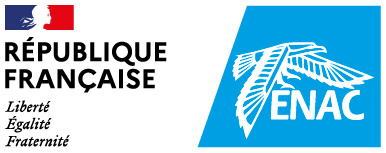GNSS, Global Navigation Satellite System, defines a satellite-based system that allows autonomous positioning and navigation of a suitably equipped user everywhere and at all times.
The Master of Science (MSc) in GNSS is a 2-year program offering advanced education in Satellite-based Positioning and Space Telecommunications.
It aims at training students for the steadily growing GNSS industry. It is co-organized by ENAC and ISAE (Institut Supérieur de l’Aéronautique et de l’Espace) in Toulouse, France
Objectives
Global Navigation Satellite Systems (GNSSs) have gained a lot of worldwide attention due to a significant increase in applications using GPS for positioning and navigation (aeronautics, vehicular and pedestrian navigation, location-based services, etc).
This international enthusiasm is confirmed by the worldwide development of other global and regional satellite-based navigation systems in Europe, the USA, China, Russia, India and Japan, creating a strong need for experts in this field.
The objective of this MSc in GNSS is to provide students with advanced skills and knowledge in the field of GNSS and its related applications, in order to prepare them to enter the highly dynamic GNSS and GNSS-dependent industry. In addition, the students have a training in telecommunications, as both fields are strongly complementary.
Career opportunities
Recent studies have shown that there will be a lack of graduate students to fill the open positions in the GNSS industry in the near future. This MSc in GNSS provides students with a head start in the evolving and growing market of satellite-based navigation and telecommunications.
Hence, graduate students can enter:
- large companies,
- SMEs,
- national institutions,
- research laboratories.
An International Cooperation
This MSc in GNSS was developed with the support of the European Commission and the European GNSS Agency, GSA (7th Framework Programme under grant agreement nbr. 248016).
It has been achieved in partnership with the Institute of Space Technology and Space Applications of the Universität der Bundeswehr München (Germany) and Politecnico di Torino (Torino, Italy), both recognized for their leading international roles in education and research in the GNSS field. These two universities also contribute to the MSc teaching and provide their international links with the GNSS industry.
The MSc also received the industrial support of Thales Alenia Space (France), Airbus (France), GMV (Spain), ISMB (Italy) ; as well as the institutional support of the UN.
Program
Duration of studies:
two years full time
1st, 2nd, 3nd Semesters
30 ECTS
The course programme of the Master’s first 3 semesters is a combination of lectures, tutorials, applied projects and assignments.
Lessons are organized in 9 teaching domains closely linked to the Satellite-based Positioning and Space Telecommunications topics, allowing students to get 91 ECTS credits.
The content of each teaching domain as well as each semester organisation are detailed on our website
4nd Semester
30 ECTS
5- to 6-month Master thesis in a company or a research laboratory.
Master thesis is concluded by a written report and an oral defense in front of jury composed of academic staff and professionals
How to apply?
Applicants for an “Master of Science” program must have a Completed Bachelor Degree in Electrical Engineering, Aerospace Engineering, Mechanicals, Mathematics, Physics or equivalent, Mechatronics, Physics...
Requested language qualification :
- TOEFL 550 (PBT)
- TOEFL 213 (CBT)
- TOEFL 79 (IBT)
- TOEIC 850
- IELTS 6.0
- BULATS 70
- D-C-L degree 4 or equivalent.
Selection and admission to ENAC’s Masters and Advanced Masters at :
https://masters.enac.fr
Contacts
Masters & Advanced Masters Programs Manager :
Michel Chauvin : michel.chauvin@enac.fr
+33 (0)5 62 17 46 71








